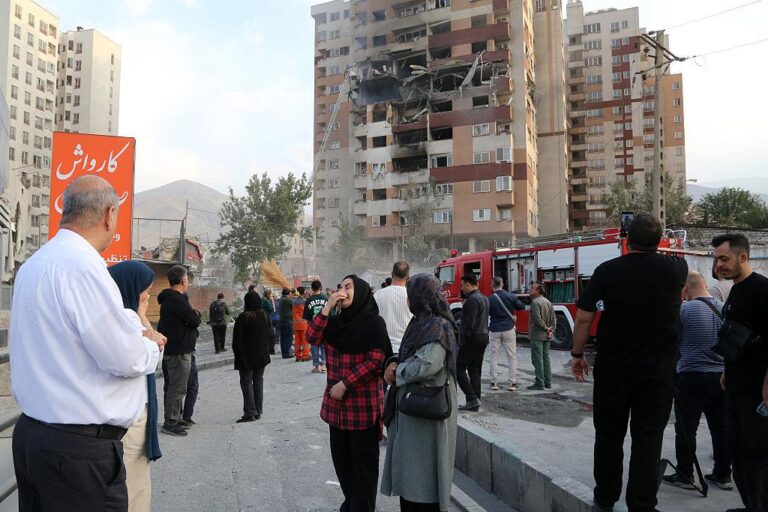Recent escalations in Israel’s military actions have intensified scrutiny on Germany’s Middle East policy, placing Berlin at a critical crossroads. As the violence unfolds, German officials face mounting pressure both domestically and internationally to reassess their approach toward the longstanding Israeli-Palestinian conflict. This development challenges Germany’s traditional balancing act in the region, raising urgent questions about its diplomatic stance and future engagement amidst rising tensions.
Israel Strikes Escalate Regional Tensions Challenging Germany’s Diplomatic Balance
The recent intensification of Israeli strikes across contentious zones has markedly complicated Germany’s diplomatic posture in the Middle East. Berlin finds itself walking a diplomatic tightrope, striving to support its longstanding alliance with Israel while managing increasing pressure from Arab nations and its own diverse domestic constituencies. As violence escalates, German officials have voiced concerns over the potential destabilization of regional peace efforts, highlighting the challenge of balancing security cooperation with calls for humanitarian restraint.
Germany’s foreign policy now faces multiple competing demands, including:
- Maintaining strategic partnerships with Israel for intelligence and defense collaboration;
- Advocating diplomatic solutions in line with EU calls for de-escalation;
- Addressing the domestic impact as German society grapples with polarized opinions;
- Engaging regional actors such as Egypt and Jordan to mediate tensions.
Analysts suggest that Germany’s ability to recalibrate its Middle East policy amid these pressures will be a litmus test for its role as a responsible actor in international crisis management.
| Diplomatic Challenge | German Response | Potential Impact |
|---|---|---|
| Balancing Israel relations | Continued support coupled with calls for restraint | Risk of alienating Arab allies |
| Regional peace efforts | Backing EU diplomatic initiatives | Influence on conflict de-escalation |
| Domestic polarization | Public dialogue and policy transparency | Maintaining social cohesion |
Germany Faces Growing Pressure to Reassess Its Middle East Strategy Amid Security Concerns
Recent escalations in the Israel-Palestine conflict have thrust Germany’s Middle East policy under intense scrutiny, prompting calls for a comprehensive reevaluation among policymakers and security experts. With Germany historically balancing a cautious diplomatic stance and commitments to peace efforts, the latest attacks have highlighted the fragility of its current approach. Critics argue that the country’s strategy needs to more effectively address emerging security threats while balancing humanitarian concerns and geopolitical alliances.
Key areas under reconsideration include:
- Enhanced intelligence-sharing with regional and Western partners to preempt security threats
- Recalibrating diplomatic ties with Middle Eastern governments amidst shifting alliances
- Strengthening support for conflict resolution initiatives that emphasize sustainable peace
- Balancing domestic political pressures stemming from diverse German communities with interests in the region
| Policy Aspect | Current Status | Proposed Adjustments |
|---|---|---|
| Security Cooperation | Selective intelligence sharing | Broaden intelligence network |
| Diplomatic Relations | Cautious engagement | Proactive regional partnerships |
| Conflict Mediation | Limited involvement | Increased mediation efforts |
| Domestic Impact | Minimal public discourse | Enhanced community dialogue |
Experts Call for Stronger EU Mediation Role and Clear Policy Framework from Berlin
Amid escalating violence in the Middle East, leading analysts and diplomats are urging Berlin to adopt a more assertive stance in regional conflict mediation. Experts emphasize that Germany’s current approach lacks the clarity and decisiveness required to effectively influence peace efforts between Israel and its neighbors. Calls have grown louder for Berlin to articulate a comprehensive and transparent policy framework that balances its historical responsibilities with contemporary geopolitical realities.
Such a framework, experts argue, should include:
- Clear guidelines for diplomatic engagement with all parties involved.
- Active participation in multilateral peace initiatives led by the EU.
- Robust mechanisms for crisis response and conflict prevention.
- Enhanced support for humanitarian aid and reconstruction efforts.
| Policy Area | Current Status | Recommended Action |
|---|---|---|
| Diplomatic Engagement | Reactive and limited | Proactive leadership with clear mandates |
| EU Mediation Role | Underutilized | Expansion through coordinated efforts |
| Humanitarian Support | Consistent but fragmented | Streamlined aid with strategic oversight |
Closing Remarks
As violence continues to escalate in the Middle East, Germany finds itself at a crossroads, balancing its historical responsibilities, diplomatic alliances, and domestic pressures. The recent attacks in Israel have intensified scrutiny of Berlin’s approach to the region, challenging policymakers to navigate a complex and volatile landscape. How Germany adapts its Middle East policy in response to these developments will have significant implications not only for regional stability but also for its role on the international stage.




